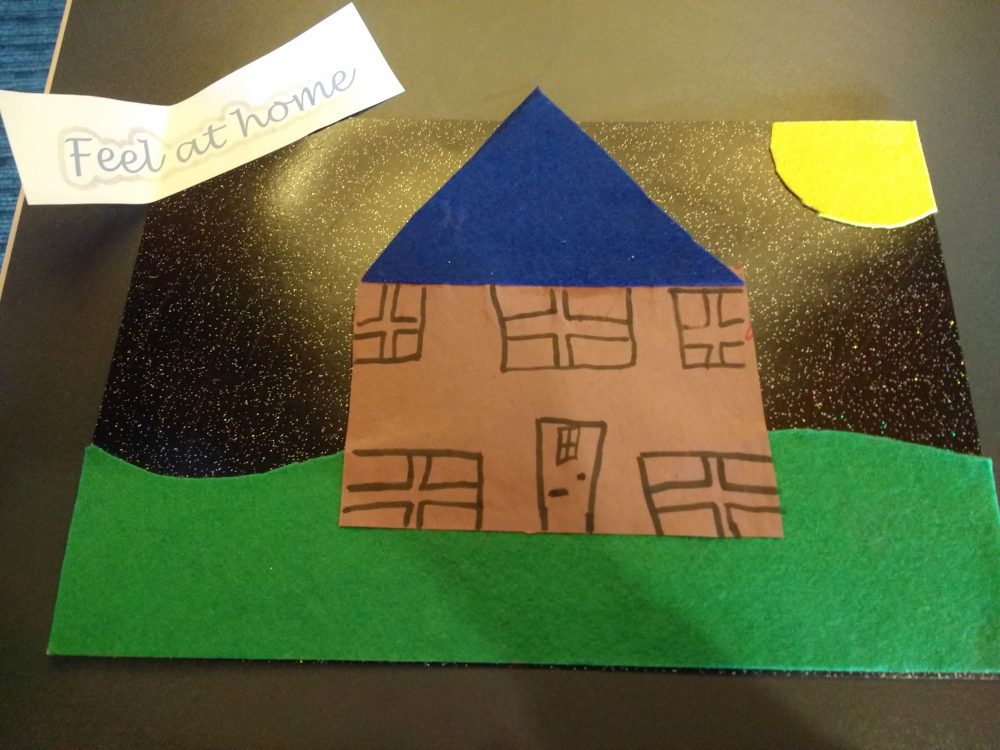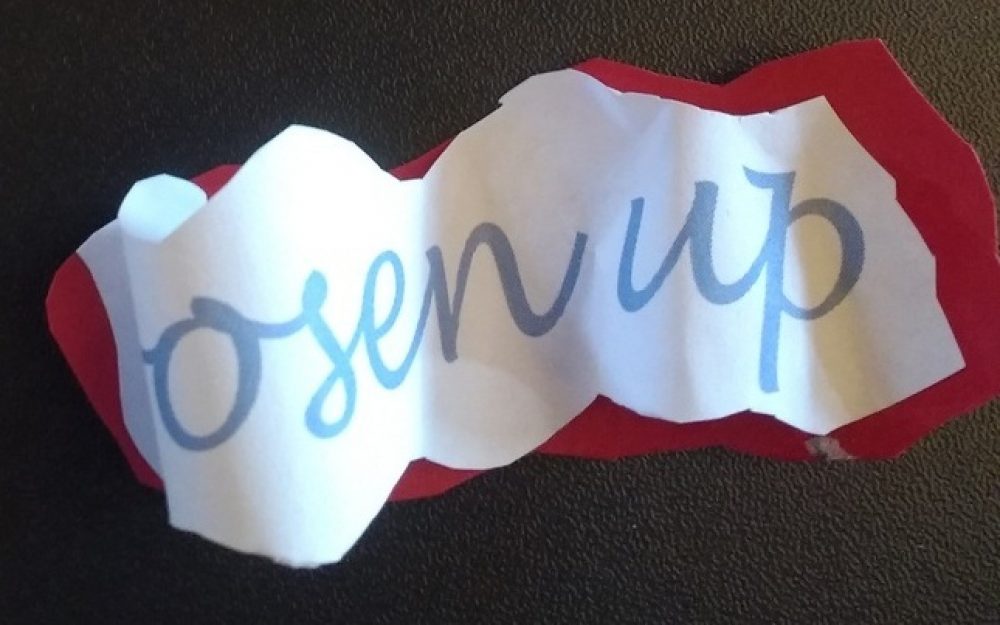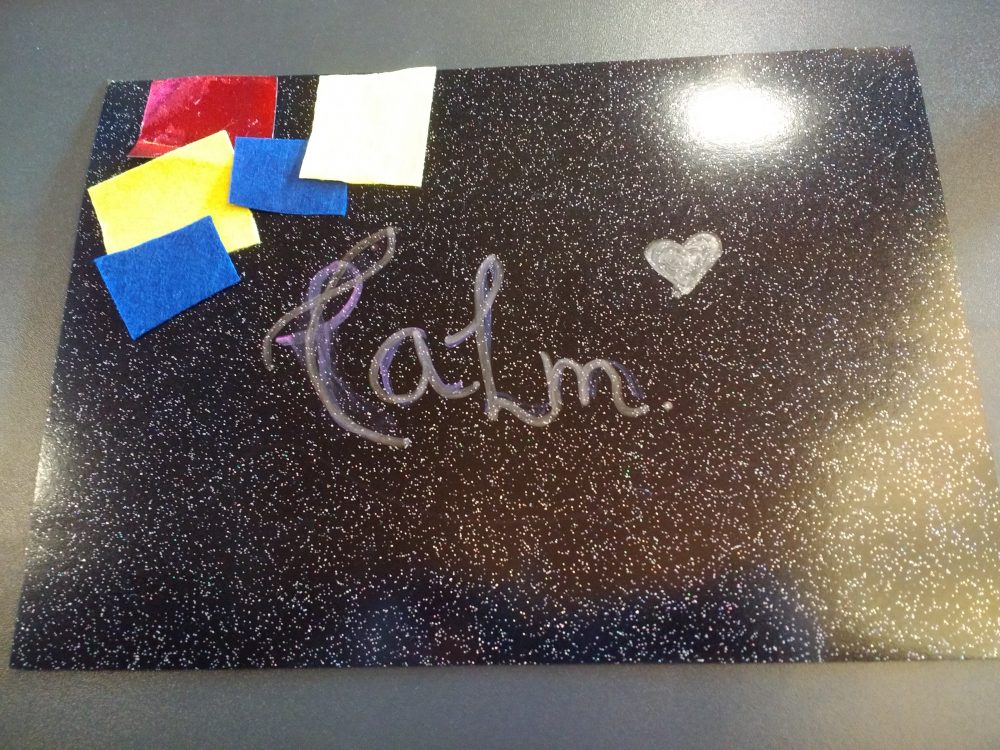You're on the Young People Site
Dedicated to self-harm recovery, insight and support.
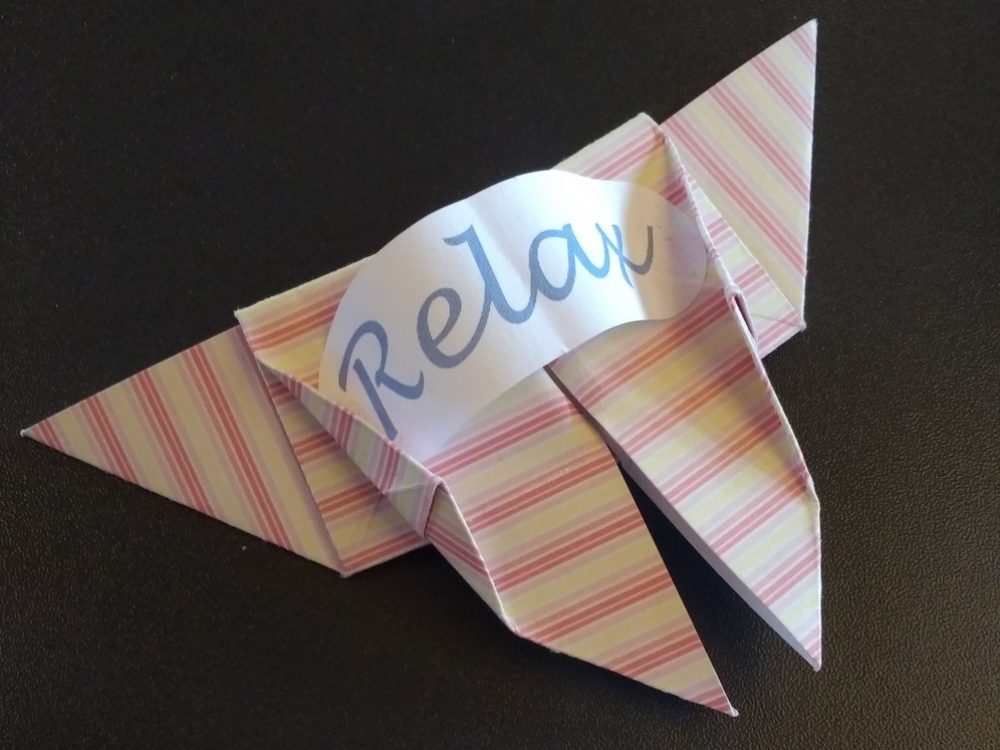
Last week at drop in was ‘relaxation week’. What’s drop in and why was it relaxation week we hear you ask? Well, drop in is basically what we call our after school club for young people. Every week night from 3.30pm until 6pm, young people from Schools all across Luton come and hangout here at the Youthscape building as soon as the bell rings for their final class. When they arrive, they usually head straight for the PlayStations, the pool table or to buy themselves a milkshake or a toastie! But that’s not all there is to do.
Every week, we have a different theme a drop in. The idea of each theme is to offer advice and to encourage young people to reflect on what that theme means to them and their life. To do this, we often set up activities and games based around that theme. For relaxation week, we were specifically looking at:
- Why rest and relaxation are important
- Different ways to relax and look after ourselves
- Relaxing physically, mentally, and spiritually
One of the activities we invited our young people to take part in order to explore what the word ‘relaxation’ actually meant, was collaging. If you search in a thesaurus, you’ll find that there are lots of words and phrases that mean ‘to relax’. ‘Unwind’, ‘loosen up’, ‘calm’, ‘sit back’ and ‘feel at home’ are just some examples. Can you think of anymore?
Using these words and phrases, we asked young people to pick the one that resonated with them the most, and to create an image or collage that visually represented how they interpreted it. Here’s how they got on…
👆 Some chose to create images that related to their lives specifically, by drawing their house or showing how they relax by sleeping.
👆Others made images that were very literal of the phrase they were trying to represent.
👆And some were a lot more abstract and emotive.
Whatever 'relaxation' means to you, make sure your taking time to look after yourself. This week, it's half term here across the Schools in Luton. We really hope our young people found this relaxation activity helpful as they prepared to take a break from their studies. If you wanted to try this activity at home, all you need is some bits of coloured and patterned card, some glue and some scissors. What does relaxation mean to you? 😊

In this article, SelfharmUK Web Manager Jess chats to colleagues Jo and Helen about mental health and being a teenager for #WMHD
SHUK: Who are you and what do you do at SelfharmUK?
J: I am Jo, I run the Alumina programmes most nights of the week. And this is a photo of me when I was a teenager...
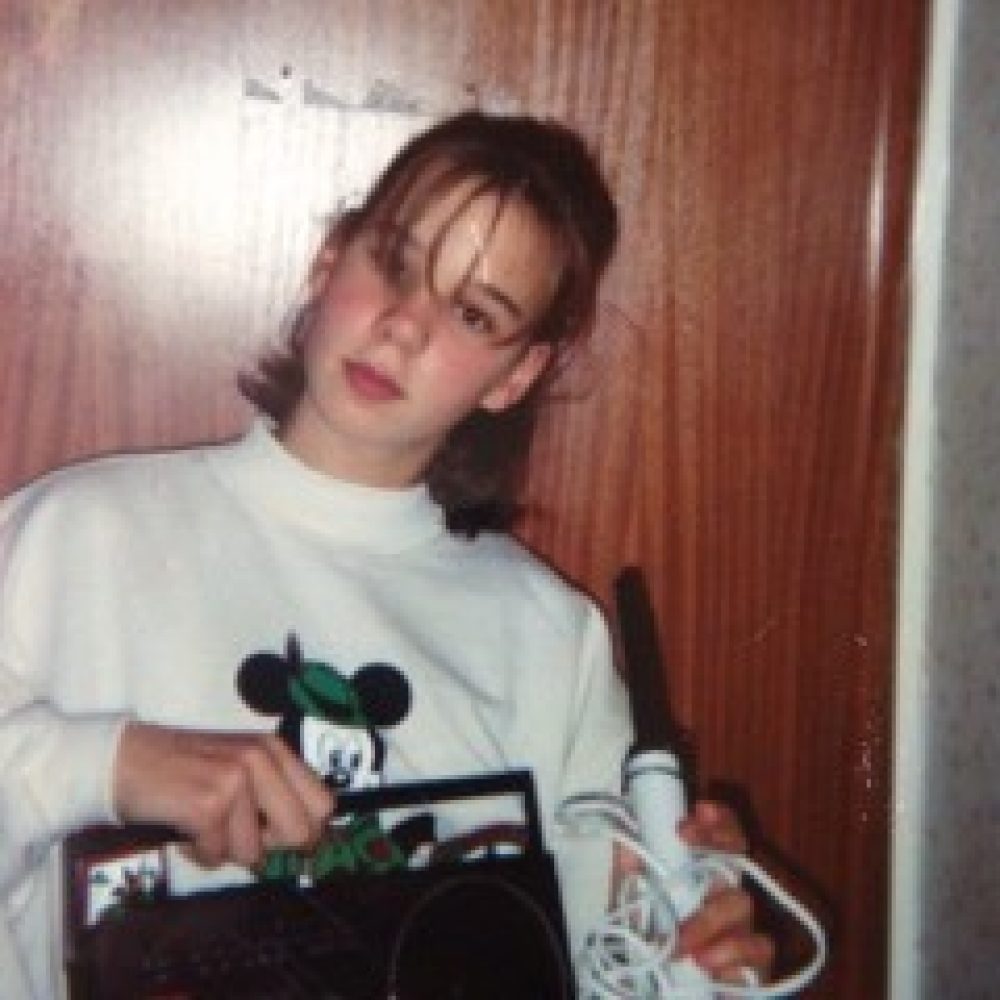
H: My name is Helen and I head up the emotional and mental wellbeing work that we do in Luton, this work feeds into what we do with the website and gives the young people of Luton a voice in what we do. I also deliver training and give lots of talks on mental health. This is a photo of me when I was a teenager...

SHUK: How has your understanding of the importance of looking after your mental wellbeing changed from when you were a young person?
J: I didn’t have a clue about it as a teenager; I was told it was attention seeking behaviour if you were down, sad or angry. Now, because i have struggled with anxiety and depression at times, I understand that that is so far from the truth.
H: When I was a teenager and you were struggling with your mental health it was put down as "hormones" or "attention seeking" because of this I didn’t understand that your mental health was something you had to look after and just thought it was something you had to be ashamed of. Now I know it is just as important as looking after my physical health, I go to the doctor for my asthma, which means that I also go to the doctor when I’m struggling with stress or anxiety.
SHUK: What do you think was your hardest life change as a teenager to adapt to?
H: Being noticed maybe? Every few years my mum would have another baby and so I just spent a lot of time feeling lost and unimportant. Especially as three of my siblings were in school with me and they all had better grades and didn’t get into trouble like me. I felt like an outcast at home and in school and with my friends.
J: For me it was bereavement. My best friend was killed in a car crash and I lost my much loved grandma all within a month. Loss effects our mental health greatly, I just didn’t realise how much when I was 12.
SHUK: What do you think is the hardest change for young people to adapt to now a days?
J: I think social media plays a huge part in how we feel about ourselves; how we want to look perfect and look like we are having fun because we believe everyone else is. I know it’s not true as everyone is struggling with their own stuff, also trying to make it look like they are having an awesome time. It is hard to turn away from social media.
H: I think the change from being a child to an adult, it’s hard to adapt to when you are expected to be an adult and make adult decisions (such as choices about your future) but at the same time being treated like a child and still dealing with the physical changes of becoming and adult.
SHUK: When you were having a bad mental wellbeing day at School, what did you do? Was there someone you could tell? What did they say? Did you tell your friends? Did they understand?
J: I struggled to talk about my feelings when i was a teenager as my family didn’t encourage us too so , I didn’t tell anyone until I was in my late teens about how hard i had found certain things. I regret that now, which is why I do my job: I know the value of someone listening to you.
H: I didn’t really have anyone to talk to. I would yell at people or walk out of lessons or get in fights. When I expressed how much I was struggling to a few of my friends they would call me a "psycho" and would walk away from me until I was “normal” again. I just felt ashamed.
SHUK: What advice would you give to young people struggling with any aspect of their mental wellbeing?
J: Find help - whether that’s through a friend, parent, counsellor, online safe place (Childline, The Mix or Young Minds) - and begin to explore why you feel like you do. Don’t stay silent, there’s people who want to help.
H: Ask for help, people are much more understanding now, it’s not something to be ashamed of and there are loads of different places you can get help from, online, in person, over the phone and more (as Jo has mentioned above). Also find healthy ways of expressing how you feel, art, music, baking, writing, working with animals. Mostly be kind to yourself.

Telling someone is a long and hard process for many of us – it starts by choosing who, then deciding how to tell them (face to face, via text or on the phone) then we have to work out what words to use…
The overwhelming response from telling the right person is the feeling of being supported. Once they have heard you and tried to help you work out why; they should suggest telling a professional person like a teacher or Doctor.
A teacher, a parent or Doctor are good people to tell: telling your friend and only your friend puts an unfair amount of pressure on them so together telling someone else who knows how to support you, is more helpful.
If you tell your parent, they will most probably take you to the doctor;
If you tell a teacher, they may inform your parents depending on your school’s policy;
If you tell your doctor, they won’t inform your parents if you are over 14.
One way or another – you will most probably end up seeing your Doctor.
So then what happens...?
Your doctor will ask you:
- How long you have been harming?
- If you know why you harm?
- Have you told anyone else?
- Have you thought of suicide?
If the idea of answering these questions is too overwhelming, you can write your answers before you go and just pass the doctor the piece of paper – it doesn’t matter how you communicate; just that you do.
The Doctor will almost certainly refer you to CAMHS (children and adolescent mental health services). This doesn’t mean you are mad or mentally unwell; it means they are specialists in supporting young people and their counsellors are trained to help teenagers.
Frustratingly, there is a huge waiting list all over the country, it may be up to a year before you get an appointment L Your school might have a counsellor you can talk to; they often have spaces quicker than CAMHS or, which is happening a lot more, young people are seeing private counsellors which their families have to pay for. If you want to look up a private counsellor in your area check out www.bacp.org.uk
The first appointment is called an Access Appointment; it is an assessment to make sure they are the right service for you. They often get you fill in a long form called a Strength and Difficulties Questionnaire which is a multiple choice set of questions about issues such as food, sleep, moods, school, relationships…there are no right or wrong answers as you are the expert in ‘you’!
From there, they will often give you a set of 6 sessions (to start with) with either a mental health nurse, a Community Psychiatric Nurse (a CNP it’s called for short) or a Psychiatrist. It doesn’t matter which you see and there is no real distinction between them, it’s often about who has space for you in the diary.
It is a Consultant Psychiatrist who will over- see your case and line managers the others to make sure they are supporting you; it is also the psychiatrist who can write prescriptions if it is felt you need any medication to help you until your mood stabilises.
www.headmeds.org.uk is a great website to help you understand what medication is what and that it's your choice as to whether you want medication or not.
Each area in the country has a slightly different way of doing things, but overall, this is the process for supporting young people who are self-harming.

What’s the World record for the number of people to fit into a Mini? (go on – find out, we know you’ll want to!)
We all try and cram ourselves into small spaces at some point in life, for some reason! Hide and seek? A tent that is way too small? Under our bed? A phone box when it’s raining?
In the same way that we try to cram ourselves into a place too small; we also try and cram our emotions into a space far too small...
This time of year for many is stressful. You might be:
1. Changing schools...
2. Doing your exams...
3. Worried about leaving School...
4. Getting your results...
5. Or concerned about a long summer break...
- What happens to all that stress that is filling us up? What will happen when it overflows?
- Is there anyway we can let out some of that stress that is crammed into us?
- Can we do it in a healthy way?
- What might it look like to pour out some of the stuff in your bucket?
Some things that will happen we can’t do anything about – such as the long summer break – but what we can do to reduce our stress is to begin to plan. For many of us planning reduces the worries about something as it helps us to take control and make choices about how we want to manage an upcoming event that is troubling us.
Think about results day: what do you want to do? Would you rather just get up early and click online to get your results in the privacy of your own house, away from your friends?
Think about the long summer break: how about volunteering somewhere? How about starting a card making service? How about babysitting? How about offering a dog walking service?
Take some time to consider what stresses are filling your bucket: What can you do to manage that stress?

Please be mindful that this post has a Trigger Warning ‼️
My best friend Regan tells me what she does to herself in a quiet voice. We’re sitting in the back of Geography class, and nobody’s listening to us because everyone messes around in Geography. She’s leaning in like we have a secret between us, and she rolls up her sleeve and shows me her forearm. It’s covered in thin red lines, which are too straight to have been done by a cat or a bush or by accident. I’ve never seen anything like it before, and I don’t know what to say.
“It helps,” Regan says.
Because I don’t want her to regret telling me, and because she’s my best friend, I say, “If it helps, then I guess that’s okay.” But I don’t think it’s okay. I’m worried about her, but I don’t know how to tell her that without sounding judgemental. If this is how she copes, then it’s okay, right? Everyone knows that other girls in my year are self-harming.
I keep looking at the cuts on her arm, and she pulls down her sleeve again to cover them up. She’s not wearing bandages, so her scratchy jumper must be rubbing against them. I’ve been cut before, and I know how it itches and stings when it’s healing.
“You won’t tell anyone, will you?” she asks. “It’s not so bad, and I don’t want them to make me see the counsellor.”
I want to tell her that I can’t keep this to myself. I have to tell someone, because this is serious, and the counsellor will be able to help her talk about this. I don’t want to be a snitch, but she’s my friend, and I care about her. But I’m her best friend, so maybe I can help her better than a counsellor? And if I tell on her, then she won’t trust me again. I have to keep this a secret, even though I don’t really want to.
“Of course I won’t tell anyone,” I say.
Regan smiles. “Thanks,” she replies. “You’re the best.”
***
A week later, we have P.E. and Regan stands with me in our corner, still wearing her long-sleeved jumper. I realise that she doesn’t want to get changed, in case someone sees her arms, and I quickly stand in front of her, blocking her from everyone’s view. It’s not fair that she can’t get changed in case someone sees her cuts, and I don’t want her to get in trouble because she’s not changed in time.
“Thanks,” she whispers, and then she takes a rugby jumper out of her bag, even though it’s summer, and we’re supposed to be wearing short sleeved shirts. I don’t say anything, but I know people will notice that she’s wearing it. I hope the teacher notices, and realises why, and tells the nurse, so that someone else can do something about this, and I don’t have to be the only one who knows.
I stand and wait for her to get into her kit, blocking her from everyone’s line of sight. We don’t say anything, and then, when she’s done, we head for the exit together. We’re the last ones there, so I can talk about it.
“Aren’t you going to put bandages on them?” I ask. I saw her arms when she pulled her jumper off, and they were still uncovered. There were small red smears where the material of her clothes rubbed against them, and streaked down her arms.
“I don’t need to,” she replies bluntly. “Look, I don’t want to talk about this right now, okay? Someone might hear.”
So, I don’t say anything else. I don’t want to upset her, or have an argument about this. We walk out onto the playground, and a few other girls look at Regan, with her thick, long-sleeved, rugby shirt. Nobody asks why she’s wearing it.
***
Regan keeps scratching her arms under her jumper. I want to tell her to stop, because it can’t be good for her, but I don’t want to seem pushy.
She keeps itching, and eventually I can’t ignore it anymore, so I say, “You shouldn’t do that.” That’s all I seem to do these days – tell her what she should and shouldn’t do, ask her questions, bug her. I'm like a broken record. But if I don’t tell her, then who will? I’m the only person who knows. But I’m worried, because she’s obviously getting annoyed by my nagging.
“It itches,” she says sharply.
“Haven’t you put anything on it?” I ask, but I don’t know what to put on cuts. I use Bio Oil for spots. Maybe that would help? But, before I can suggest it, Regan says, “I wish you’d stop going on about it. It’s fine.”
“It’s just – if you’re going to do it, you should take care of it,” I say. I just don’t like the idea of those injuries going unchecked. But it comes out wrong, so it sounds like I’m lecturing her again.
Regan folds her arms. “God, I wish I’d never told you.”
I don’t know how to respond to that. After a moment, I say, “It’s just a lot to handle. I want to help, but I think you should tell someone.” I know how it sounds, but it’s true.
She glares at me, and it looks like she’s going to say something else, but she doesn’t. She just walks away.
***
Four days later, in first period, my phone buzzes with a text alert. I look at it under the desk, and it’s from Regan – I need to talk to you @ lunch.
So, at lunchtime, I wait in the form room, in our usual spot. We haven’t spoken since our fight, and I’ve missed her. She walks in and sits next to me.
“I got them bandaged,” she says. There’s no need for her to say what she means. I know. I don’t say anything else, hoping she’ll continue. And she does. “I thought about what you said, and you’re right. You shouldn’t have to handle this by yourself. It’s a lot. I know you care about me.”
“Yeah, I do,” I reply, a little awkwardly. This whole thing is pretty awkward, and she looks embarrassed too.
“I just thought that, if you were really my friend, you wouldn’t want me to go to someone. But I can’t tell you everything.”
I’m so relieved – for her and myself – that I can’t help but smile. “It’s not that I don’t want to hear what’s going on with you –” I say, at exactly the same time as she says, “I don’t wanna be a burden –”
We both laugh, because we talked over each other, and she smiles at me. “Thanks for helping me with this,” she says.
“It’s okay,” I reply. “You can tell me stuff, okay? It’s not that I don’t want to hear what’s going on with you. But I have to know you’re getting support from somewhere else too.”
“Yeah,” she agrees. “I get it.” And then, after a few seconds, she pulls me into an unexpected hug, and I feel the bandages underneath her jumper. It’s a small sign that she’s taking steps in a positive direction, that she’s trying to help herself. It’s all I need, and I hug her back, tightly. “You’re a good friend,” she says.
This short story was written for SHAD2018 by Sophie, a Graduate Volunteer at Youthscape working alongside the SelfharmUK team.

Has anyone been watching ‘Educating Manchester’?
There was a lovely girl on there who was having a crud time – her background was tough, sad and difficult. Teachers were trying to support her but she wanted desperately to leave school, stay home and manage life her way.
She was self-harming.
As her story unfolded, we heard her pain – she lost her mum at a very young age, bought up brilliantly by grandad, struggled with her emotions and education wasn’t a priority in her life: getting through each day was.
Because her grandad showed her love, because her teachers showed her care, because her friend’s sought help for her; she was able to allow a teacher to clean and cover her cuts. She was able to tell them how low she was feeling and how she needed more help in school and coping with Year 11 pressure.
Wow – we thought. What difference those teachers were able to make by listening to her, working with her grandad, allowing her express her feelings and even question whether School was right for her. No teacher pressured her, no one shouted at her or judged her.
Teachers can offer more than an English lesson or advice about career choices: they can offer care, support, a listening ear and as trust worthy adults.
Adults go into teaching because they believe in supporting, guiding and caring for young people. At SelfharmUK, we train teachers to help young people struggling with self-harm, because, we believe, that by working with us, we can help you more.
Today, have a think – is there a teacher you could trust with your story?

September brings new challenges for many of us – a new term isn’t just back at school or college, it’s all the changes it brings. New classes, new teachers, different people in our classes, a change in timetable, pressured teachers pressuring us to do well, and the hope that this year we will ‘do better’.
What if you don’t need to ‘do better’? what if actually just ‘doing enough’ is good enough this year for you? Pressure to achieve and fear of failure is a big reason why so many of us struggle with our mental health – we are scared that we won’t make the grades, fit in with the right people, that others are better than us, we want to make our family proud and then, sadly, we take it out on ourselves if we think we aren’t ‘doing better’ this year.
So, let’s turn it around this academic year – what if you teach yourself to hear this statement every time you are told about how hard you are going to have to work this academic year: ‘ just do enough, by your own standards’ (this isn’t in any way your ticket to ‘don’t care and just fly by the seat of your pants’!), it’s an instruction to learn something new this year:
Be gentle with yourself. There is only one you.
Good enough might not get you the grades you want but it might just keep you well enough to be able to cope with how you are feeling.
Good enough might just relieve the deep pressure that keeps you awake at night.
Good enough might allow you time to flourish outside of academic pressure and develop new skills on things you are passionate about.
Good enough means that it doesn’t matter how many times you have to ‘start again’, each time is good enough because each day, you are doing good enough.
You are more than ‘good enough’, you really are - whether you believe it not.
As we all start again, have hope that this year, however many times you need to start again in your journey coping with self-harm; it is good enough.

Some people love school – they love seeing their mates every day, they enjoy learning and enjoy the structure of the school day;
Some people really dread school – getting up early, having to wear a uniform, having to sit in lessons that feel irrelevant, being surrounded by people all day and then having homework to do.
For some people the only thing worse than school are the endless summer holidays.
The idea of the summer break is good – waking up late, no plans, chilling out……
But….the reality can be so different after the first 48 hours: seeing everyone’s holiday photos of hot sunny places may make you feel sad or jealous; feeling like everyone else is out having fun and you are on your own, not wanting to join in but at the same time wanting to be invited to join anyway; hoping it might rain so you don’t have to make up a excuse for wearing long sleeves; feeling isolated without the structure of the school day which makes each day feel long; getting fed up playing online games with your sibling….
There used to be a TV programme called ‘why don’t you?’ and it gave you ideas of things to make, do, places to visit with your mates. It wasn’t too bad for the 90’s!
There was a line on the opening song which said ‘why don’t you switch off your TV and do something less boring instead?’ which used to annoy me because if I turned off the TV then, I wouldn’t be able to know what do to!
We want to give you some ideas to get you to turn off your TV (or wifi!) and make the summer feel more positive:
- Make a plan – draw up a calendar, write on any firm plans you have,
- Keep to a daily time schedule – the later you wake up, the harder it will be to get to sleep that night. Sticking to a routine might be helpful.
- Keep active – whether that’s doing a yoga youtube, go for a run, walk the dog, do sit ups – something that keeps your endorphins working (the happy chemical in your brain),
- See positive people – now it’s the holidays, you don’t have to see the annoying people from school – choose 1 or two people that you feel comfortable with and plan to see them at least once a week
- Get a project – an art one, paint your bedroom, rearrange your furniture, do the gardening, start a photography project, do an online course (groupon always have cheap ones), build a bench or a window seat. Basically keep your hands and brain busy!
- Learn a new skill – teach yourself to knit, design tattoos, learn a language, join the library and get some reading, volunteer in a charity shop…..
- Get in touch with us and write a blog about your journey and wellbeing this summer
At SelfharmUK we recognize that summer can be hard with lots of additional stresses due to the changes in routine and weather – we will be running our online Alumina self-harm support group each Monday and will be adding new videos and support material weekly.
We hope it helps your summer!

The blog post below was written by Lydia. She hopes you find it helpful.
I’ve never been very good at introducing myself so here I go. Hi there! I'm Lydia, most people know me as Lid. I am an 18 year old green tea and Netflix enthusiast. One of my favourite Netflix shows is 13 Reasons Why. I also have a passion for sport, Disney films and music. My favourite time of the year is summer, when the nights get longer and the weather gets warmer. Being able to go for long walks on the beach till late and watching the sun set over horizon. However I also love winter, being able to curl up in my window watching the snowflakes fall, wrapped in a blanket with and note pad writing. My favourite colour is blue and I hate the colour yellow, I find it extremely patronising. I also love doing my makeup and trying different eyeshadow colours. I'm not a pro at it but I try aha! I guess you could say I'm your average 18 year old.
I wanted to write for SelfharmUK because I personally deal with a lot of issues myself and have found through my own experiences, I can help other people which I’ve found extremely rewarding. I have suffered from a number of mental health illnesses since the age of 14, and whilst on my journey to recovery, the experiences I have encountered have shaped me into the person I am today. Not only do I want to write to help others, I have found writing extremely rewarding and beneficial to challenging the thoughts and voices inside my head. Yes, I am still recovering and struggle daily - but that doesn't stop me wanting to share my voice and challenge the issue I see within the mental health community.
Being diagnosed at a very early age has meant that I have encountered lots of other people with similar issues and experiences of self-harming from school, hospital (when I was hospitalised) and later Sixth Form. Not only have I had self-experience, but I have supported peers and friends when they too have struggled by helping them to understand my approach to the topics and see a broader view of the opinions of self-harm and mental illnesses as a whole. I have for some years now vlogged on YouTube about mental illnesses and reached out to as many people as possible by starting conversations about the importance of mental health.
When I'm not partaking in breaking the stigma of mental illness and starting conversations on mental health - you'll find me touring the countryside, taking photos or in bed relaxing. I'm excited for the future and steps I will be taking in the next year… and can't wait to start writing for SelfharmUK of course!

It sounds like you are worried about your friend, and it’s great to hear you want to support them. Self-harming can be risky and it is understandable that you are concerned.
Firstly, it is important to remember the following things;
- you are not responsible for your friend’s actions.
- you cannot make them stop self-harming if they are not ready to.
- there is no quick fix or magic formula that works for everybody.
But here’s what you can do.
Friendship can be a powerful thing, and just being there for your friend may be a great comfort to them – to know they are not alone.
This doesn’t mean you should feel a pressure to be able to be around for your friend at all hours. Helping them create a bigger support network may be of great benefit to you both. Maybe you could tell them about this website or the young minds website. They could contact Childline and chat to a counsellor in confidence at any time of day or night, (for children and young people up to the age of 19). Or perhaps you could find out who else they trust that they could talk to.
People try all sorts of different ways to cope with their feelings – and different things work for different people. Some people keep a diary, others like to read or listen to music. Some people find it helpful to stimulate their senses – so they might put on their favourite perfume or aftershave for the nice smell, eat their favourite snack for the taste, cuddle their pillow or pet for the soft touch and so on. Maybe you could think about telling your friend about this.
Perhaps your friend might find it helpful to have a think about the things that trigger their self-harm. Perhaps they need support more so for the trigger than the self-harm itself. For example, if bullying is triggering their self-harm, perhaps reporting this will help take the trigger away. Or if exam stress is the trigger, maybe asking a teacher to help with a revision timetable will help.
Many people who self-harm and try to stop, feel like they’ve failed if they do hurt themselves again. Reassure your friend that it is normal to find stopping self-harming difficult, and that every urge they do manage to conquer is a victory.
Just by reading this article shows you are an amazing friend and doing a great job. It is a real balancing act to support a friend and look after your own feelings at the same time. It is a good idea to make sure you have support too, whether that be from another friend, an adult you trust or from a reliable website like this one, young minds or Childline.
By Sam Firth who works for Childline

In this article SelfharmUK Project Manager Ruth Ayres sits down to talk to Oliver and Lewis about their gender identity and self-harm
SHUK: Oliver, what age did you begin self-harming?
O: I started at 11 years old, I have always struggled with talking about my emotions and I remember the exact moment my eating disorder started. I was in Paris on a school trip and my boyfriend at the time was talking to a friend and said my thighs were really fat. I look back now astonished, I was a size 10 at the time. I was nowhere near fat. But that comment had a huge effect on me. I can remember everything about that moment, from what I was wearing to the exact place we were in Paris.
SHUK: How did you self-harm?
O: Lots of different ways, I was diagnosed with an eating disorder when I was 12, this was a lot to do with stopping my body from developing as a girl. I didn’t want that to happen. I was hospitalised for 8 months, from May to December 2013. I was force fed in that time. Not by way of a tube, but I was told, I could eat a meal or drink a high calorie drink, which I have to say tasted disgusting. I picked the drink though, because at the time the thought of chewing was awful for me.
SHUK: Really why so?
O: I don’t know; I just couldn’t cope with it.
SHUK: Were you self-harming in other ways?
O: Yeah I was cutting and I tried to take my own life, on 2 occasions.
SHUK: Jo, (Oliver’s mum) how was it for you when you first realised Oliver was self-harming?
J: Awful, I felt like a massive failure and I was constantly asking the question why couldn’t Oliver talk to us about their feelings. Given all the jobs I have done, often in counselling and supporting young people, I felt like I had massively let Oliver down. I had to however begin to think about how we as a family helped Oliver to get better.
SHUK: What did you want to do?
J: A combination of wrap Oliver up in cotton wool and scream at the whole world. I wanted to stop them self-harming and essentially make everything better.
SHUK: Did you at this stage have any idea why?
J: Not at all, Oliver had struggled with their transition to high school and we as parents assumed that this was the reason for their self-harm.
SHUK: Oliver, can you talk to me about your gender identity?
O: I feel totally fluid in my gender at the moment, and I am not sure if I want to fully transition my body from female to male. I am living life as me, non-defined by my gender. I would describe myself as Agender – living without gender rather than transgender.
SHUK: Do you think your self-harm was linked to your gender identity?
O: Yes; I felt a huge lack of community and acceptance, community is really important and I now feel a huge sense of belonging to the queer community (Lesbian, Gay, Bisexual, Transgender). There is a total lack of education around gender identity and we are still seen as outcasts I guess. I mean just recently 50 people were killed in Orlando, in place where they should have been safe. I think people who are exploring gender identity feel unable to come out for fear of not being accepted and loved, or killed. My self-harm was about controlling my emotions that I didn’t understand or couldn’t talk about, these emotions were linked to my gender identity.
Oliver and I had a long discussion about where they were now and they were able to express very freely the peace they now feel as a result of being agender. Oliver was clear with me that there needed to be more education around being agender, and they became incredibly passionate about the fact that people had died and the world needed educating. However, what is totally evident and what they do know is that they feel more comfortable in their own skin than ever before. They feel much more confident in expressing themselves. Oliver feels there is a sense of them being able to understand themselves and not conforming.
SHUK asked Jo what advice she would give to parents if their child is self-harming?
J: Don’t panic, talk to someone outside of the family for support and try in a very gentle non- threatening way to open up conversations with your children about self-harm.
SHUK: Oliver, if you could go back 12 months what advice would you give yourself?
O: I would tell myself to not try and run away from my community and I would tell myself to accept that this is who I am. I would try not to be anything other than myself. I would also remind myself that being queer is empowering, not strange. It is an escape from a heteronormative society, which is something I’ve always searched for, and that one day I will finally be free to be as queer and loud as I want.
Since coming out Oliver has not self-harmed for 18 months and is doing extremely well, it is obvious from my time with them that they are at peace. Oliver is able to speak honestly and freely about who they are and I have to say they are a very inspiring person to be around.
Lewis Hancox is YouTube vlogger and up and coming comedy writer, with many exciting things in the firing line, he also happens to be transgender. Lewis took part in a channel 4 programme in 2011 called My Transsexual Summer, which followed 7 people at different stages of their transition. Lewis has now completed his surgery and feels far more at peace than ever living life as a man. Lewis has always identified as a heterosexual male and for him the loneliness of living as a girl was incredibly tough.
Lewis gave me some of his time over coffee one afternoon and I was able to ask him a few questions about transgender young people, suicide and self-harm. Here is what he had to say.
SHUK: Was self-harm anything that ever you struggled with, by this I mean any area of self-harm from cutting to self-poisoning to eating disorders?
L: Well actually I was going to answer no then, but I guess you’re right, eating disorders are part of self-harm. I developed an eating disorder when I was in high school and this was due to the changes I was seeing in my body, I was desperate to not go through puberty as a girl and wanted to stop the development of my body parts as much as possible. I was diagnosed with anorexia and I knew there was something else underlying this. If I’d have known about being transgender back then this would have definitely helped, I would have felt like there was a light at the end of the tunnel.
SHUK: Were you ever hospitalised?
L: Yeah I was, due to my periods stopping they needed to be sure that my vital organs were not shutting down. I was in for a night, they ran some tests and I was discharged. I was then referred to a counsellor.
SHUK: How can we help transgender young people around self-harm?
L: I think education on the subject is the key, when I saw my counsellor after being discharged form hospital my mum mentioned to her that when I was younger I never wanted to wear girls; clothes or be called “she”. The counsellor dismissed this and said “oh no that’s nothing, lots of young children feel that way.” She put my eating disorder down to my parents splitting up. I know that if I’d have had the space to talk about my confusion around my gender it would have been different. It’s about people being educated, especially professionals.
SHUK: Why do you think self-harm and suicide is such a massive issue in the Trans community?
L: I think there is a few reasons really, I think that people feel isolated and unaccepted and even when they have come to terms with being trans themselves they often feel isolated and rejected by their family and friends, who perhaps don’t understand. I also think a huge issue is the waiting times for people to have access to testosterone and surgery. I was rejected for my surgery in St. Helens and I waited two years for testosterone. This means that even when people have made their peace with being trans, they still feel out of control while they wait for the right support to start their transition. Self-harm is something that they can control and I think this is why it is such a big issue. I have trans friends who have self-harmed and also attempted to take their own life.
SHUK: If you could go back to in time to your younger self, what would you say?
L: I would reassure myself that I am going to live a perfectly happy life once I have transitioned and that my body isn’t the be all and end all. I would tell myself to not put my life on hold and focus on my ambitions and things that I can work towards. I feel like I lost a good few years of my life when all I could focus on was my transition and I guess a part of me regrets that now.
Gender continues to be a complex, challenging and difficult subject for many young people, gender identity is a concept that needs to be talked about, celebrated and accepted.
“The secret of change is to focus all your energy, not on fighting the old, but on building the new.” Socrates
For years I was known by certain staff members in school for my use of self-harm. It was the way I felt able to survive in a world that seemed to be falling apart around me. I knew it wasn’t the best way of coping, but I needed it at the time; I needed it to show me an outward sign of my inward suffering. Over time I managed to build up some trusting relationships within school staff who knew I self-harmed but remained respectful, avoiding forcing me to show them or talking about it. This understanding and respect was important for me in order to allow me to begin the process of recovery from self-harm.
After one particularly bad night, I attended school afraid that I may need some extra support with cleaning and caring for my self-harm. I was a part of a support community on a social media site so I asked around for advice when bringing it to the attention of school staff. I was met by negativity due to past experiences of others. Some were rushed to A&E by panicked teachers, others had been told to sort it out for themselves as they were self-inflicted, and others were taken from their classes and away from their classmates to a seclusion room. Fearful that I may be met with a similar negative response I approached the school chaplain who gave me time and space to open up about what had happened that particular night. She was calm and empathetic and this made me feel comfortable and confident in my sharing. The chaplain spoke to me about what I needed to do to keep the wounds clean rather than forcing me to show her so that she could deal with the wound; this made me feel empowered and responsible to take care and take control.
Because of the positive response I received in seeking help, I felt more able to open up and receive the support I desperately needed at times. I felt confident in knowing I wasn’t going to be secluded for a behaviour I felt I needed temporarily to help me, and I knew I would be listened to and met with support when I sought it.
It’s completely okay to feel afraid about opening up to someone about your self-harm. Talking for the first time or the 100th time can be daunting as self-harm is very personal and there are a lot of emotions attached to it. Although there are people who do respond in the wrong ways to people who do self-harm, there are others who really do want to help you and want the best for you. So, I encourage you just to try building a relationship with someone you feel able to. Over time open up and, when you’re ready, seek the support you need because you really do not have to face anything in this world alone.
Miriam Jarvis is a student Mental Health Nurse studying in Plymouth, she is passionate about all things Mental Health, church and can usually be found with a cup of tea in hand! You can find some of her work raising awareness of mental illness dotted around the internet:
http://blurtitout.org/2013/12/24/depression-miriams-useless-guide/

